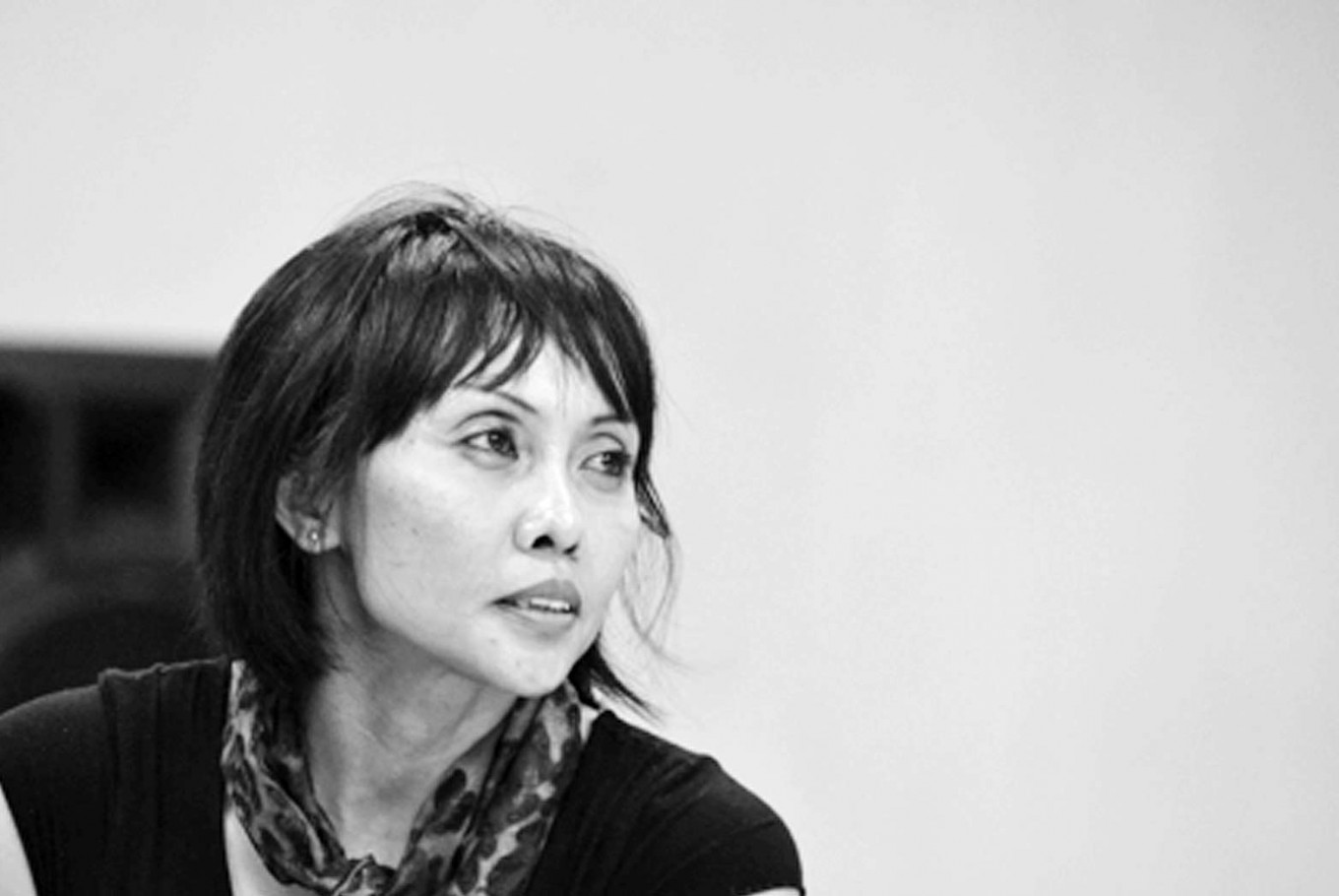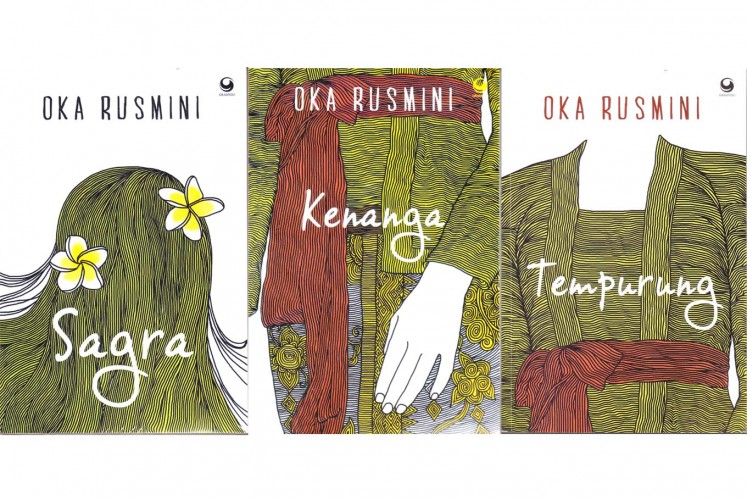Popular Reads
Top Results
Can't find what you're looking for?
View all search resultsPopular Reads
Top Results
Can't find what you're looking for?
View all search resultsOka Rusmini: Documenting lives of Balinese women
Veteran Balinese author Oka Rusmini chooses to present the dark side of her society through her novels, short stories and poetry.
Change text size
Gift Premium Articles
to Anyone
W
ell-known for writing about the oppression of women in the Balinese context, Balinese author Oka Rusmini is now studying ancient literary texts from across Indonesia.
Over the course of 20 years, the 49-year-old writer, who also works as a journalist for the local Bali Post newspaper, has released around 10 books.
In all her writings, the violence against women and the oppression they have to face due to Balinese adat (customs) as well as the shackles put on human beings through the caste system have become a constant common thread.
Her best known work is Tarian Bumi (Earth Dance, 2001), a novel that has been translated into English, Swedish, German, Italian and Korean.
The novel summarizes all the problems mentioned above, which are commonly found in Balinese society, into one sweeping prose. The novel is about a woman who is cast out by her family after marrying someone from a lower caste. Issues relating to poverty and lesbianism are also interwoven in the novel.
Read also: Adults key to children's interpretation of tolerance
“Rather than contesting established stereotypes, another recent text creates its own mythic quality through evocation of the ongoing, timeless quality of female experience,” literary critic Barbara Hatley wrote about the book.
Oka received the Southeast Asian Writers Award in Bangkok in 2012. Previous recipients were Indonesian literary luminaries like Budi Darma and Sapardi Djoko Damono.
Recently, Tarian Bumi has been republished by Gramedia. Meanwhile, the other three books — Sagra ( 2001 ), Kenanga ( 2003 ) and Tempurung (Shell, 2010) — have been republished by Grasindo during the same period.
Sagra ( 2001 ), Kenanga ( 2003 ) and Tempurung (Shell, 2010) by Oka Rusmini (Grasindo/File)“We decided to republish three of her books to further boost Indonesians’ interest in reading literary works, which have improved over the last few years. We know that prior to this [recent boost], Indonesians’ interest in reading literary works had slumped,” Grasindo editor Septi WS says.
Septi said a strong feminist slant, encapsulated in thick layers of Balinese culture, was Oka’s distinguishing characteristic as a writer.
Oka’s fascination with literature, feminism and culture goes a long way.
“When I was 4, I used to dance the ballet, before I was crippled by polio. I couldn’t dance anymore. Plus, my parents’ marriage was a train wreck and I was taken away by my grandparents. From then on, I started to live in a solitude that could not be resolved and I couldn’t tell anyone about this; I trusted nobody,” Oka told The Jakarta Post.
Thankfully, she said her family was able to fill the emptiness with books and a typewriter. This was when she started to find her voice through writing.
“My favorite writer is Hans Christian Andersen; his works enabled me to fantasize, to be myself. I can perform monologues with trees. I sculpt these stories and make them my own,” she said.
Read also: Saparinah Sadli continues to fight for justice
Her decision to join the Bali Post in 1990 as a humanities reporter marked a turning point in her life when she was finally able to transcend her own pain by observing that of others.
“I was able to interview a lot of extraordinary women implicated in cases involving the adat, farmers, Balinese dancers whose names were not acknowledged, did not get serious attention from the government despite saving local culture and dance,” she said.
“My mind was blown open. In 1990, all problems in Oka’s life have finished […] There are many things that need to be documented in a novel. I’m not the only one who’s suffering in this world, there are so many others who share the same fate.”
The result was Tarian Bumi, initially published as a serial in the Islamic Republika daily newspaper in 1995. Another fruit from her reporting experiences was her 2010 novel Tempurung.
“Tempurung is a compilation of events recorded in daily news, which I thought would not be much of an interesting read. That’s why I decided to present them as prose,” she said.
Oka said in contrast to the 1990s, nowadays Balinese women’s bargaining power when dealing with adat cases is relatively stronger thanks to better education.
Read also: Agustinus Wibowo: Making peace with identities
“Women in villages might still face conflicts related to customs, but now they are a bit more courageous in standing up to them. Now, women’s inheritance rights have already been fulfilled. Previously, once women got married, they were thrown away like dogs,” she said.
However, feminism’s battle is far from over.
“Although women’s earning power is now relatively similar to that of men, it doesn’t mean their problems are over,” she said, lamenting women’s magazines that still confine women to domestic roles and lure them with consumerism.
“It is sad that literary writers never win awards to commemorate Kartini Day […] Those who win such awards are typically fashion designers and chefs. Kartini deals with ideas.”
Her concern about women, coupled with her literary ambition, has actually prompted her to explore ancient texts from other cultures as well
“In Borobudur, I studied [Javanese text] serat centhini, which talks about religion and women’s bodies, which suits [my interest],” she says.
“In ancient Javanese textbooks, including the kakawin, it seems like women have no voice or role. These texts have been finished, but I want to interpret them in my own way and publish them in a series of books.”












